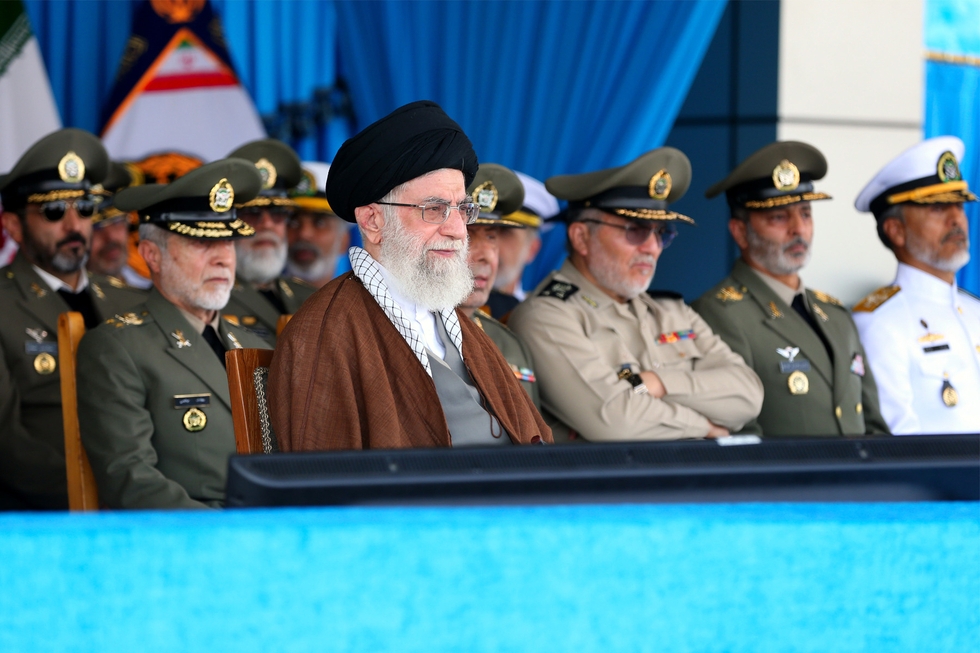Iran split over engagement with the US

The detention of five Iranian journalists, including prominent reformists Isa Saharkhiz and Ehsan Mazandarani, ostensibly on charges of facilitating Western influence, has touched off a flurry of speculation on a new round of factional fighting in Tehran.
Factional tensions are indeed on the rise in Tehran as the country prepares for parliamentary elections early next year. These forthcoming elections are a key test for Iranian President Hassan Rouhani, who may be faced with an existential crisis if centrists and reformists fail to make significant inroads in the next parliament.
But the latest crackdown also stems from deeper motives and genuine concerns within the security establishment about the political, economic and cultural vulnerability of the Islamic Republic following the nuclear-related Joint Comprehensive Plan of Action (JCPA) signed in July.
Pursuant to the JCPA, Iranian conservatives and hardliners are anxious to keep the United States at bay, fearful that the nuclear agreement may act as a catalyst for alignment and understanding in other areas.
These political forces appear to have the backing of Iranian leader Ayatollah Khamenei who since the summer has repeatedly warned against deeper engagement with the US. In his latest positioning on the issue Khamenei went so far as “forbidding” further talks with the Americans.
But keeping the United States fully at bay may be a tall order not just in the light of the JCPA but more importantly perhaps in view of the Islamic Republic’s growing political and diplomatic weight in the region.
Factional strife
From the outset of the victory of the Iranian Revolution of 1979, the issue of negotiations, let alone relations with the United States, has had significant adverse domestic ramifications. It led to the downfall of the first provisional revolutionary government in November 1979, as some of its key ministers were perceived to be on friendly terms with the Americans.
Whilst the causes of the Iranian-American conflict are multi-faceted, suffice to say that more than three decades of intense political and ideological enmity (which produced limited military confrontations in 1987-88) has taken its toll on the political elites of both countries.
In Iran, the mere hint of talks with the US was a taboo subject until 2007 when the conflict in occupied Iraq forced a limited engagement with the American authorities in that country.
At present, prospects of further talks with the US coincide with growing factional tensions which pit President Rouhani and his allies against an increasingly combative conservative coalition.
The tensions stem in part from a clear shift in the rhetoric and desired policies of Rouhani, who is perceived to be moving away from a centrist position to embrace reformist ideas.
In tandem with his changing rhetoric, Rouhani has adopted a more confrontational stance toward his opponents, thus defying analysts who predicted he would seek compromise with the conservatives and hardliners.
Rouhani has strongly criticised the detention of the journalists, in effect calling the arrests politically motivated, which in turn produced a sharp rebuke from Ayatollah Sadegh Larijani, the head of the judiciary.
Rouhani’s tentative adoption of reformist positions has brought the conservatives and the radical hardliners closer together and emboldened them to step up their opposition to the government.
Fearful of a reformist comeback, which brings back painful memories of the years 1997-2005, the conservatives and hardliners are fully focused on blocking Rouhani loyalists from improving their position in the next parliament.
Foreign policy is another sphere of contention, as the conservatives and hardliners scramble to put a brake on the remarkable momentum of Rouhani’s foreign policy team. Led by veteran diplomat Mohammad Javad Zarif, Rouhani’s foreign policy team is the most capable since the Iranian revolution.
Institutional opposition
The Islamic Republic’s foreign policy, specifically further engagement with the United States, is the point at which institutional attitudes coincide with factional interests.
Not surprisingly the latest wave of arrests connected to fears of American infiltration, which incidentally include Nizar Zakka, a Lebanese citizen with alleged “deep” ties to the US military, were carried out by the intelligence branch of the Islamic Revolutionary Guards Corps (IRGC).
The Iranian security establishment is deeply wary of the United States, to the point of being perennially vigilant against American plans for gaining a credible foothold inside Iran. The media and civil society activists are seen by the security establishment as soft targets for the Americans.
However, the biggest obstacle to further engagement with the US is Ayatollah Khamenei, who on this issue is in broad agreement with the conservatives and hardliners.
Whilst not totally opposed to limited talks with the Americans, albeit with a grudging attitude, the Iranian leader is instinctively and profoundly opposed to consistent engagement with the US.
In the prevailing circumstances, with Iran fully engaged on all the region’s fault-lines and conflicts, Khamenei’s core concern is to maintain revolutionary principles in the face of the Islamic Republic’s growing diplomatic weight.
For the first time in more than 25 years, Khamenei’s anti-American position faces a serious challenge from Rouhani’s capable and emboldened foreign policy team which seeks to capitalise on the nuclear deal to place Iran’s relations with the West on a stable footing. This inevitably involves a degree of engagement with the US.
The alignment of deep-seated institutional attitudes with factional considerations, and reinforced by the backing of Iran’s powerful leader, bodes ill for Rouhani’s foreign policy ambitions.
Absent a major breakthrough in next February’s parliamentary elections, Rouhani either has to give up on his ambitions or risk a forceful reaction from his opponents.
- Mahan Abedin is an analyst of Iranian politics. He is the director of the research group Dysart Consulting.
The views expressed in this article belong to the author and do not necessarily reflect the editorial policy of Middle East Eye.
Photo: A handout picture of Iran's Supreme Leader Ayatollah Ali Khamenei, shows him (L) attending a graduation ceremony of naval cadets in the northern city of Noshahr on 30 September 2015. (AFP)
Stay informed with MEE's newsletters
Sign up to get the latest alerts, insights and analysis, starting with Turkey Unpacked
Middle East Eye delivers independent and unrivalled coverage and analysis of the Middle East, North Africa and beyond. To learn more about republishing this content and the associated fees, please fill out this form. More about MEE can be found here.





